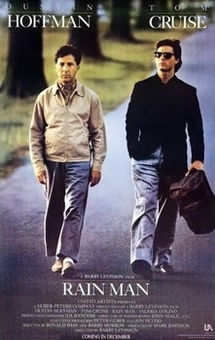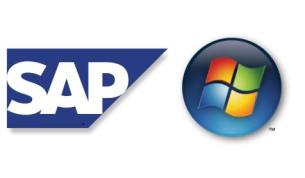Yesterday I met a learning psychologist to discuss how people who are on the Autism and Aspergers spectrum can be integrated into the technology workforce (Aspergers is a form or type of Autism) and I thought it would be good to share my notes and thoughts following my fascinating meeting with her.
DUSTIN HOFFMAN MAKES A FORMAL INTRODUCTION

I think its fair to say that gainfully employing autistic people is something that I think has been at the back of the Western World’s mind ever since “Rain Man” came out, and I certainly don’t think it’s unusual for someone to have watched that film and wondered to themselves how that character’s strengths could be implemented in their industry!
So I was a little bit surprised when one of the first things that she soon told me is that the “Raymond Babbit” character in the film (Dustin Hoffman) is an autistic person who also has “savant abilities” (an almost super human ability to do maths and remember things) and that having these abilities are very far from being a typical trait of autism!
MY FIRST NON-NEUROTYPICAL CANDIDATE
But recruiting autistic people in technology is certainly been something that has been on my mind since the beginning of my career. That’s because I remember very early on I found a developer’s CV who had a PhD in Computer Science and had mentioned that he had Aspergers at the bottom of his CV. I called him up, partly out of curiosity, and to my surprise he seemed to be nothing like Dustin Hoffman’s character, there was something about his communication style that was a little “askew”, but there was nothing inhibiting his ability to express himself in verbal communication. We discussed some positions I had at the time and I went ahead and submitted him for them. Disappointingly we got absolutely no traction in the market and I when I called him back a couple of weeks later it turned out he had decided to go back into academia.
My feeling was/is that his story is not uncommon. Whenever the industry has a drive to hire “diversity” candidates, we almost always see the same thing. Lots of enthusiasm and fanfare at the top, but at the hiring manager level things tend to peter out. I’m not so sure this is an active resistance but probably something more passive and risk-adverse.
THE TIMES THEY ARE A CHANGIN’

But there are lots of reasons to think that times might indeed be changing. SAP began a pilot scheme to hire autistic people in 2013 and Microsoft began one in February 2015 (non-Neurotypical), and a year later they opened up 10 new positions across the UK. By 2015 SAP reported they had hired 66 people across the world and only 2 had left, which is an excellent attrition rate given that its not unusual for autistic people to lose their job within the first year.
AUTISTIC HIRES HAVE BOTH MET AND EXCEEDED EXPECTATIONS
Both have teamed up with Specialisterne, a specialist non-Neurotypical recruitment company to help achieve this, and both report that their hires have either met or exceeded expectations. Both companies have been keen to hold up their successes to show the world what can be done with an open mind and some specialist training.

AUTISTISM IN TECHNOLOGY
SAP have said that autistic people are well suited to being “software testers, programmers, and data-quality-assurance specialists” and given that autistic people tend to be either at average or above average intelligence, that makes sense to me!
So hopefully, an increased consciousness across the IT sector that autistic people can bring an awful lot to a company’s development efforts, will bring more and more people into the technology workplace.
NOTES ON EMPLOYING AUTISTIC PEOPLE
So it was with these ideas bubbling at the back of mind that I met a learning psychologist to find out more about what employers should think about when considering hiring technologists with these conditions. These are my notes, they’re not a definitive guide, if you want to learn more about hiring autistic people I’d suggest that the Papworth Trust and the National Autistic Society are both good places to start:
- STRUCTURE AND ROUTINE Autistic people are most comfortable being able to follow the same routine or set of routines day in, day out.
- NOT FLEXIBLE And they won’t respond well if your business demands mean that work will chop and change frequently.
- JOBS WITH A START AND AN END Autistic people will thrive in an environment where challenges have a clear “start to finish” nature.
- VERY LOYAL Autistic people can be very loyal employees, often if they find a place they like, they won’t move. That doesn’t mean if you manage to hire someone you’ve got them for life, it’s still a quid pro quo agreement, but in general they’ll stick around.
- BREAKS Autistic people are often reluctant to take breaks because they don’t feel comfortable in the typical work-based socialising that is involved. As an employer you’ll still have to ensure that your hires take breaks though, so work with them to find a solution.
- ENGAGING WORK Autistic people tend to be at average or above average intelligence, so it stands to reason that successfully employing an autistic person will require giving them work that they consider challenging and engaging, an art that is undoubtedly one of the most difficult challenges to surmount in this arena.
- That said if you’re successful on this point, Autistic people don’t tend to expect promotions in the same way that Neurotypical people do, they’ll be unlikely to be interested in management or work that involves close technical collaboration.
- EXCELL AT DILIGENCE The fact that they don’t get bored by very repetitive tasks means that they are well suited to software testing and quality assurance roles where churning out work that requires a high degree of attention to detail.
- AVOID TASKS WHICH REQUIRE QUALITATIVE JUDGEMENTS As a generalisation Autistic people don’t tend to thrive with tasks that require making opinion calls, or qualitative judgements. Their thinking is much more binary.
- TAILOR INSTRUCTIONS AND COMMUNICATION Autistic people are very literal, and dislike and can get confused by common language idioms and “business speak” (the nuances of being told that someone found a task very “challenging” in a workplace context might well be completely lost on an autistic person).
- SOME HAVE A LANGUAGE DISORDER Some Autistic people actually have a language disorder as well as being on the autism spectrum which will add an extra layer of complexity to an employment environment. Although it should be noted that the relationship between poor social skills, language and autism is a massive area of ongoing scientific research.
- VERY HONEST Given their binary nature many employers find their Autistic hires “what you see is what you get” helpful and refreshing. Without any real concept of “business speak” someone who speaks their mind, often with a seemingly ruthless honesty, and no “hidden agenda” can be a real asset to a team.
- SOCIAL SKILLS PROGRESSIVELY IMPROVE Many Austic people’s social skills gradually improve over the years with increased experience at socialising.
- AVERSION TO FLUORESCENT LIGHTS Employers looking to hire autistic people should be aware that it’s common for people on this spectrum to have an aversion to very bright or fluorescent lighting, so you might need to check out the ambience of your empty work station!
- CASE BY CASE BASIS!! Finally it’s well worth bearing in mind that each Autistic person will have this condition to a greater or lesser extent.
+++ This is what I learnt from my meeting and having since read into what’s happening in the tech industry in general. If you read this and you think there’s something wrong, or a misrepresentation please email me martin@oxenburypartners.com so I can make any corrections that are needed +++
